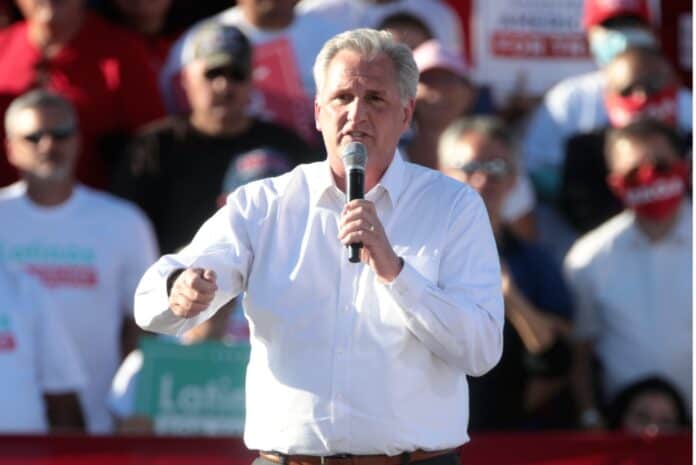The U.S. House of Representatives voted late Wednesday to pass a debt limit deal brokered by the White House and Speaker Kevin McCarthy, R-Calif.
The vote was 314-117 in favor, with dozens of Republicans and some Democrats voting against.
The measure, if approved by the Senate and signed by President Joe Biden, would suspend the nation’s debt limit until Jan. 1, 2025, after the 2024 presidential election; cap non-defense spending but also limit defense spending increases; and expand work requirements for some of those receiving food stamps, among other things.
With the bill now heading to the Senate, it still faces a tough vote as lawmakers on both sides of the aisle have already expressed hesitation or outright disapproval.
The Senate faces a looming deadline Monday, the day the U.S. Treasury has said puts the federal government at risk of defaulting on its debt obligations, which many economists say could have significant impacts on the country’s debt rating and economy.
McCarthy fought off dozens of Republican defections to get the bill across the finish line in the House.
Those critical of the bill, named the “Fiscal Responsibility Act,” argue it is a far cry from the one Republicans passed weeks ago to raise the debt limit, saying it has been hollowed out by concessions made to Democrats.
One of the concerns is that it would suspend the debt limit until 2025, after the 2024 presidential election. The U.S. is approaching $32 trillion in debt and fiscal conservatives say federal spending, and massive budget deficits, must be cut. Critics argue that the bill passed by House Republicans earlier in May went much farther to cut spending.
“The Limit, Save, Grow Act, passed by House Republicans, responsibly raised the debt limit while reining in spending,” Rep. Jeff Van Drew, R-N.J., wrote on Twitter Wednesday. “The Fiscal Responsibility Act simply does not live up to the expectations we set, and I cannot in good conscience vote for it.”
Casey Harper
Go to Source
Reposted with permission







![Protecting Portland: No Good Deed Goes Unpunished [REVIEW]](https://www.wisconsinrightnow.com/wp-content/uploads/2025/07/portland-356x220.jpg)























